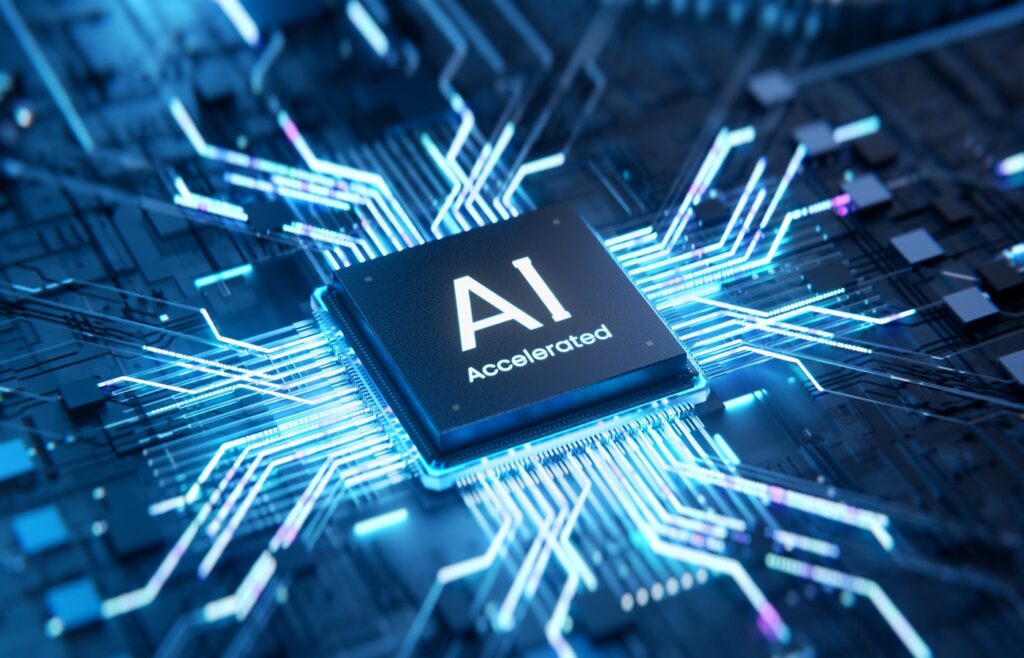The tech giants AMD, Broadcom, Cisco, Google, Hewlett Packard Enterprise (HPE), Intel, Meta, and Microsoft have come together to introduce a groundbreaking open industry standard known as Ultra Accelerator Link (UALink). This collaborative effort aims to enhance the communication between AI accelerator chips in data centers by improving speed and reducing latency significantly.
The implementation of an open standard like UALink is set to revolutionize the performance of artificial intelligence (AI) and machine learning (ML) clusters industry-wide. This move ensures that no single company will have disproportionate control over the latest AI/ML technologies, high-performance computing, and cloud applications.
Interestingly, the UALink Promoter Group excludes two major players, NVIDIA and Amazon Web Services, from its roster. By doing so, the group appears to be challenging the dominance of these companies in the AI hardware and cloud market domains.
The UALink Promoter Group plans to establish a consortium in Q3 of 2024 to oversee the continuous development of the UALink standard, with access to UALink 1.0 expected around the same time. Additionally, a higher-bandwidth version is slated for release in Q4 2024.
### What is UALink and Who will Benefit?
UALink, short for Ultra Accelerator Link, defines a standardized method for connecting AI accelerator chips in servers to facilitate faster and more efficient communication between them. These accelerator chips, such as GPUs and TPUs, are integral to AI technologies, performing multiple complex operations simultaneously. However, seamless communication between these chips is crucial for training, running, and optimizing AI models efficiently.
The upcoming UALink 1.0 standard will enable up to 1,024 GPU AI accelerators distributed across one or multiple server racks to connect to a single Ultra Accelerator Switch. This setup will significantly boost speed, decrease data transfer latency, and simplify workload scaling as demands increase.
Though specific details about UALink are forthcoming, the group indicated that UALink 1.0 would involve AMD’s Infinity Fabric architecture and be supported by the Ultra Ethernet Consortium. This standard publication will benefit system OEMs, IT professionals, and system integrators seeking to structure their data centers for high-speed, low-latency, and scalable operations.
### Companies in the UALink Promoter Group
– AMD
– Broadcom
– Cisco
– Google
– HPE
– Intel
– Meta
– Microsoft
Companies like Microsoft, Meta, and Google, which have heavily invested in NVIDIA GPUs for their AI and cloud technologies, are striving to reduce their dependence on NVIDIA’s hardware dominance by participating in the UALink initiative. A standardized UALink switch will pave the way for a variety of compatible accelerators, allowing AI companies to diversify their hardware options and avoid vendor lock-in.
This move particularly benefits companies like Google, Intel, Microsoft, and Meta, which have developed or are developing their own accelerator chips. By leveraging UALink, these companies can integrate their custom AI processors seamlessly, potentially reducing their reliance on NVIDIA.
### Companies Not in the UALink Promoter Group
#### NVIDIA
NVIDIA’s notable absence from the UALink Promoter Group can be attributed to its stronghold in AI-related hardware and its soaring market value. With an estimated 80% share of the GPU market and a substantial role in interconnect technology, NVIDIA’s NVLink technology competes directly with UALink in connecting accelerators across servers. The company’s exponential growth in value also indicates its current advantageous position, raising questions about the potential impact of UALink products on NVIDIA’s market dominance.
#### Amazon Web Services (AWS)
As the leading cloud provider, AWS’s decision not to join the UALink Promoter Group aligns with its pursuit of developing its accelerator chip families like Trainium and Inferentia. Additionally, a long-standing partnership with NVIDIA and AWS’s position as a cloud market leader may explain its reluctance to participate in the UALink initiative.
### Why Open Standards are Crucial in AI
Open standards, such as the UALink initiative, play a vital role in preventing monopolistic control by a single entity in the tech industry. By fostering collaboration among multiple companies, these standards ensure a level playing field and promote innovation across AI data centers.
The global AI Alliance launched in December underscores the industry’s commitment to responsible, open-source AI development to curb the power of closed model developers. Shared knowledge accelerates advancements in AI performance on a broader scale, meeting the increasing demand for AI compute capabilities. UALink’s robust, low-latency scale-up network promises efficient resource addition to enhance AI technologies, as emphasized by AMD’s Forrest Norrod.
The introduction of UALink marks a significant step towards standardizing AI hardware and promoting a more open ecosystem, where companies can collaborate to drive advancements in AI technology collectively.
__(Word count: 869)__

